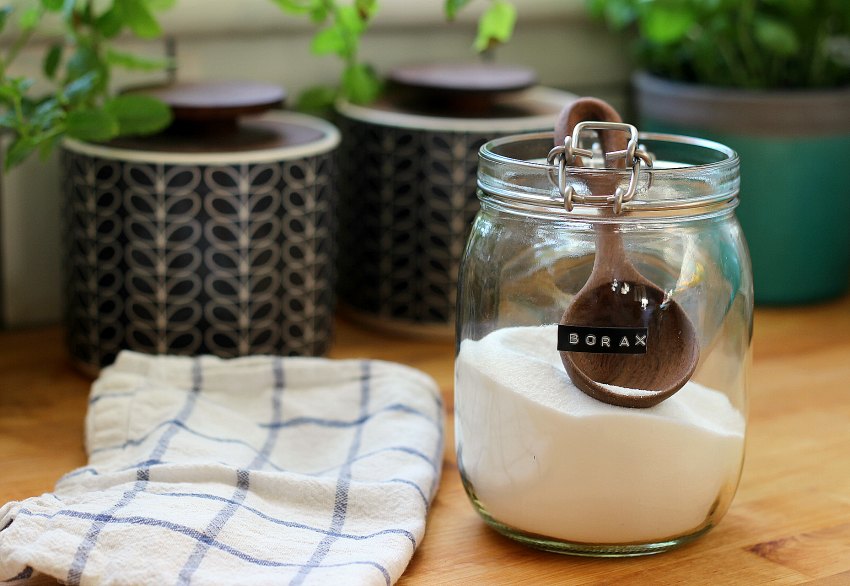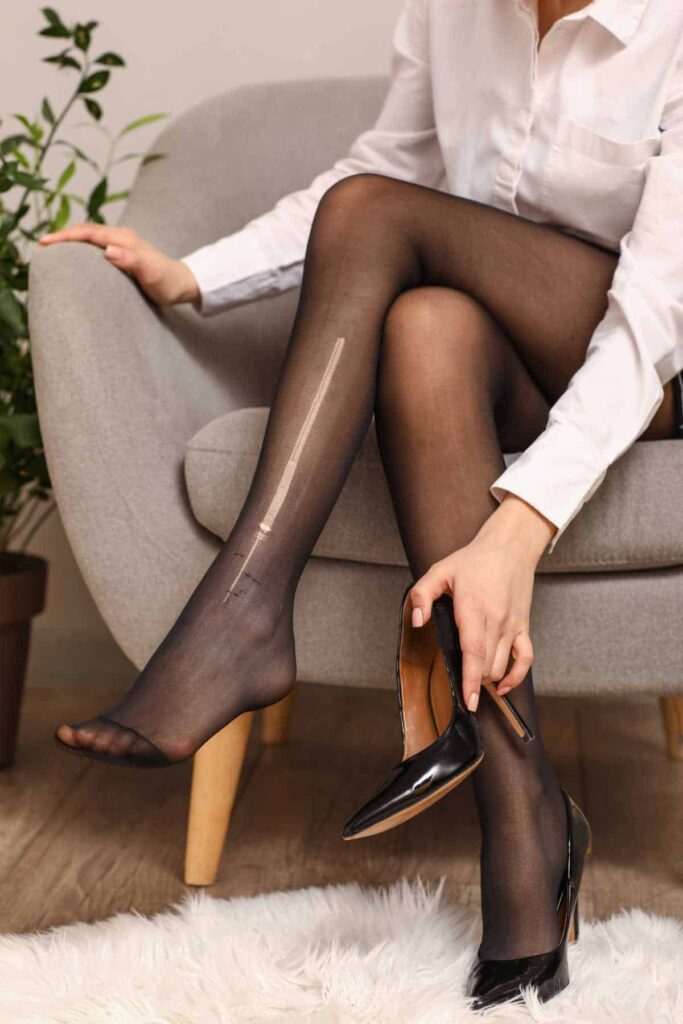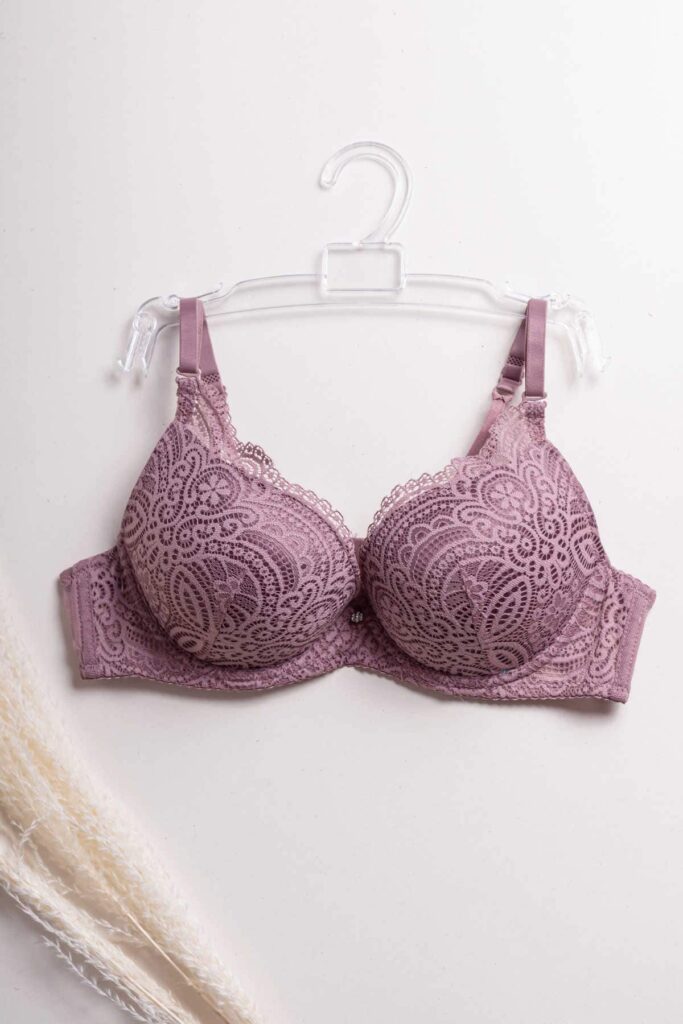Are Any UK High Street Shops Ethical In 2024?
To support the running costs of Moral Fibres, this post may contain affiliate links. This means Moral Fibres may earn a small commission, at no extra cost to readers, on items purchased through these links.
Are any high street shops ethical? Let’s take a look into just how ethical the UK high street is. I also highlight the high-street brands taking big strides when it comes to sustainability.
Fast fashion may be cheap and convenient to buy. However, the low cost and convenience factor comes with a catch – with garment workers and the environment paying the price. It’s no wonder many of us are asking if it is possible to find ethical clothing on the high street.
Catastrophic events over the last decade or so have put pressure on fast fashion brands to improve their business practices. This includes the Rana Plaza collapse in 2013 in Bangladesh. Here 1,134 garment workers were killed and at least 2,000 injured in the collapse of a factory building, where clothing was being made for many international fast fashion brands.
However, has anything changed since 2013? And are any high street brands better than others in 2024? Let’s take a look.
Table Of Contents
- The Aftermath Of Rana Plaza
- Is Signing The International Accord Enough?
- More Ethical Brands To Look Out For On The High Street
- The Bottom Line
The Aftermath Of Rana Plaza
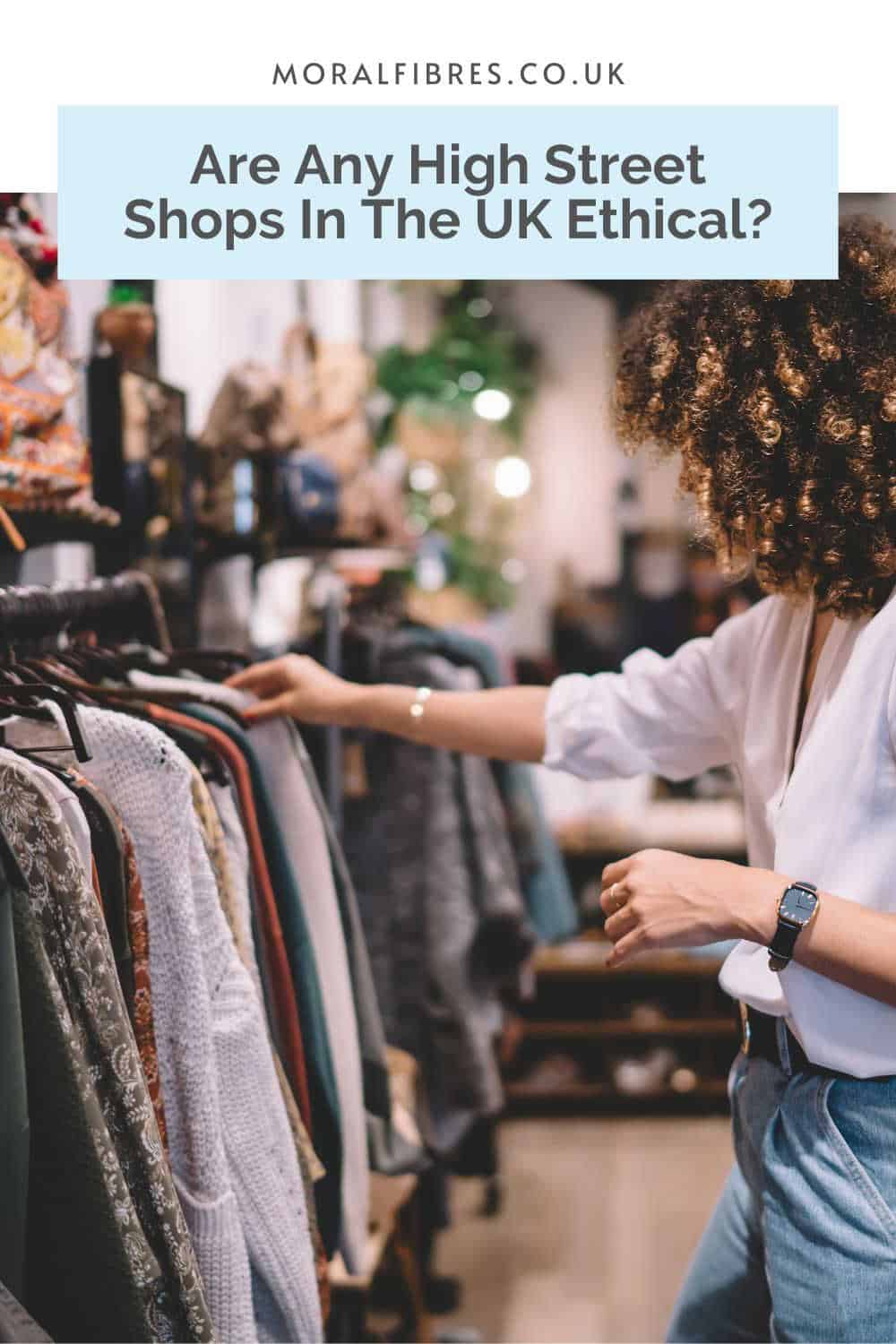
It seems to have taken the most fatal garment industry incident ever followed by consistent pressure from campaigners to convince many high street shops to accept some responsibility for their supply chains. However, it wasn’t until the campaign group Labour Behind the Label ran a “pay up” campaign that some other companies felt pressurised to donate to the Rana Plaza Donor’s trust.
A feeling of outrage that no companies would be held accountable for the building collapse also led to the creation of the Bangladesh Accord. This was a legally binding contract that ensured that clothing companies would be held responsible for inadequate safety regulations of Bangladeshi supplier factories in the future.
In November 2023, brands and unions agreed on a new International Accord. This aim is that this accord will continue the life-saving work of the Bangladesh Accord to make factories – including those outside Bangladesh – safe after the Rana Plaza collapse. This agreement will mean, the accord will cover other countries, helping to ensure the safety of more garment workers.
Brands that sign the International Accord have to sign on to at least one country agreement, depending on where their factories are located. At the time of writing, the International Accord has been signed by 100 brands, with 92 signatories to the Pakistan Accord and 88 signatories to the Bangladesh Accord.
With more than 100 fast fashion brands globally, this means that brands that have not yet signed the Accord continue to put workers’ lives at risk.
Is Signing The International Accord Enough?
Despite an increasing number of brands signing the accord, it’s clear the high street still has a long way to go when it comes to ethics. Especially when you consider some of the main issues still facing the fashion industry:
Environmental Impacts Of The Fashion Industry
The fashion industry’s carbon impact is still bigger than the aviation industry’s – accounting for 10% of the world’s annual carbon budget. The fashion industry has also been found to be responsible for widespread water pollution from both microplastics and toxic chemicals found in dyes.
Poverty Wages
When it comes to the social impact of fashion, many workers in the fashion industry are still paid poverty wages. This condemns families to a life of deprivation and malnourishment. For example, in November 2023, the Guardian reported that some Bangladeshi garment workers making clothes for UK high-street brands are facing starvation. Many workers are having to steal and scavenge food from fields and bins to feed their children.
This doesn’t just happen in the Global South. Even in the UK, with our laws on minimum wages – in 2020 it was found that some garment workers in Leicester were being paid just £3.50 an hour. Meanwhile, in the US it was found in 2023 that garment workers in Southern California were being paid as little as $1.58 per hour.
Child Labour
Child labour is also still rife in the fashion industry. The International Labour Organisation (ILO) estimates that 170 million minors are engaged in child labour. The ILO states that “Many [are] making textiles and garments to satisfy the demand of consumers in Europe, the US, and beyond”. However, it’s worth noting that the ILO classes 15-year-olds as adults. This means more children are likely to be in work than is currently reported.
Unsafe Working Conditions
As well as poverty wages and child labour, garment workers across the globe still work in extremely unsafe conditions. Long working hours, exposure to hazardous chemicals, dust and smoke inhalation, noise, and lack of ventilation are just some of the health issues affecting garment workers.
Workers can also face sexual abuse and harassment on a daily basis. Whilst across the globe, many garment workers are prevented from unionising by their employers. This makes it harder for them to demand improvements.
More Ethical Brands To Look Out For On The High Street
Undoubtedly, the most ethical options are to shop for clothes secondhand or to shop from ethical clothing brands. However, there are some high-street brands out there who are working to improve their sustainability ratings. These efforts deserve a mention:
White Stuff
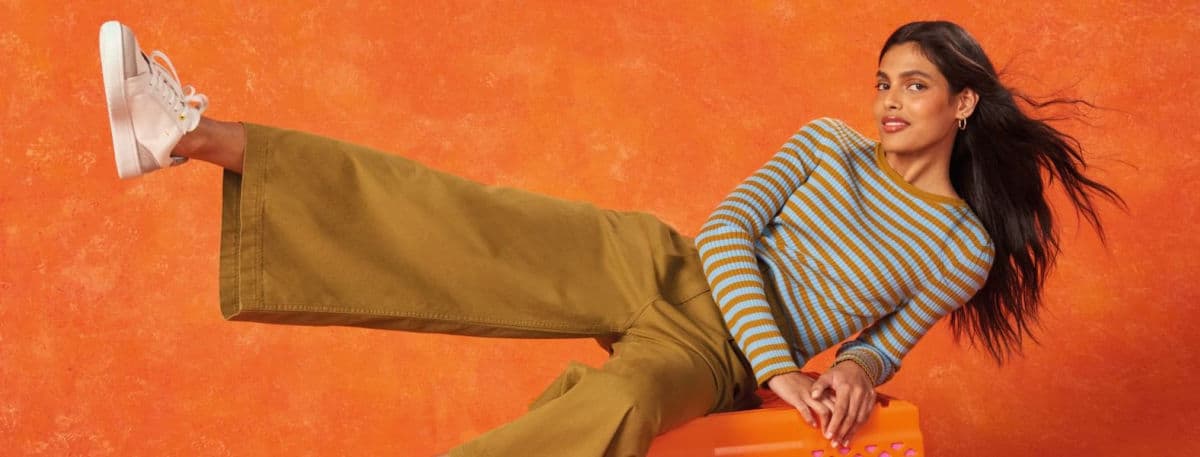
White Stuff may not be on your sustainability radar, but it should be. This high-street brand is currently the UK’s biggest fashion retailer of Fairtrade-sourced cotton. This helps encourage farmers to grow Fairtrade cotton, rather than less robust BCI Cotton.
As well as this commitment to Fairtrade cotton, over 70% of White Stuff’s range is also made from natural materials. This includes cotton, wool (with increasing amounts of recycled wool being used) and linen. Plastic is used, however, White Stuff is continuing to increase the proportion of recycled plastic it uses.
Fat Face

As another familiar high street name, Fat Face is increasing its ethical efforts. Now a certified B-Corp – meaning it prioritises people and the planet as well as profit – the brand is working to increase the percentage of sustainable fabrics it uses. You’ll find an increasing amount of linen and hemp clothing. Plus you’ll find wool sourced from Responsible Wool Standard (RWS) suppliers.
Fat Face is also working to increase its use of recycled polyester, rather than virgin polyester. These fabrics are certified by the Recycled Claim Standard (RCS) and the Global Recycled Standard (GRS). Meanwhile, in the case of its recycled swimwear, this is certified by REPREVE®.
In its supply chains, Fat Face is also working to reduce its impact. Environmentally, it is working to use fewer hazardous chemicals, and reducing its water usage. While socially, Fat Face is working to make sure all of the people involved in making its clothes are treated fairly.
Seasalt
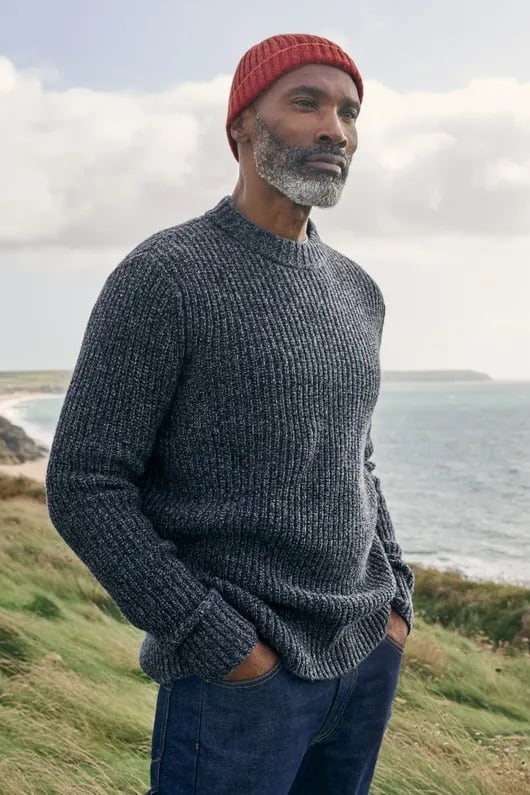
High-street clothing brand Seasalt is another store to have on your radar. Offering inclusive sizing and ethical style at High Street prices, many of Seasalt’s clothes are made from GOTS-certified organic cotton. In fact, Seasalt was the very first fashion company to achieve Soil Association GOTS certification back in 2005.
As well as GOTS-certified organic cotton products, also look out for its innovative eco-friendly waterproof fabrics made from organic cotton and recycled plastic bottles for a sustainable approach to outerwear.
The brand also uses plastic-free packaging and recently launched a take-back scheme. Working with ReSkinned, this partnership allows you to trade in the Seasalt clothes you no longer want. ReSkinned with then resell or recycle your clothing responsibly.
Patagonia
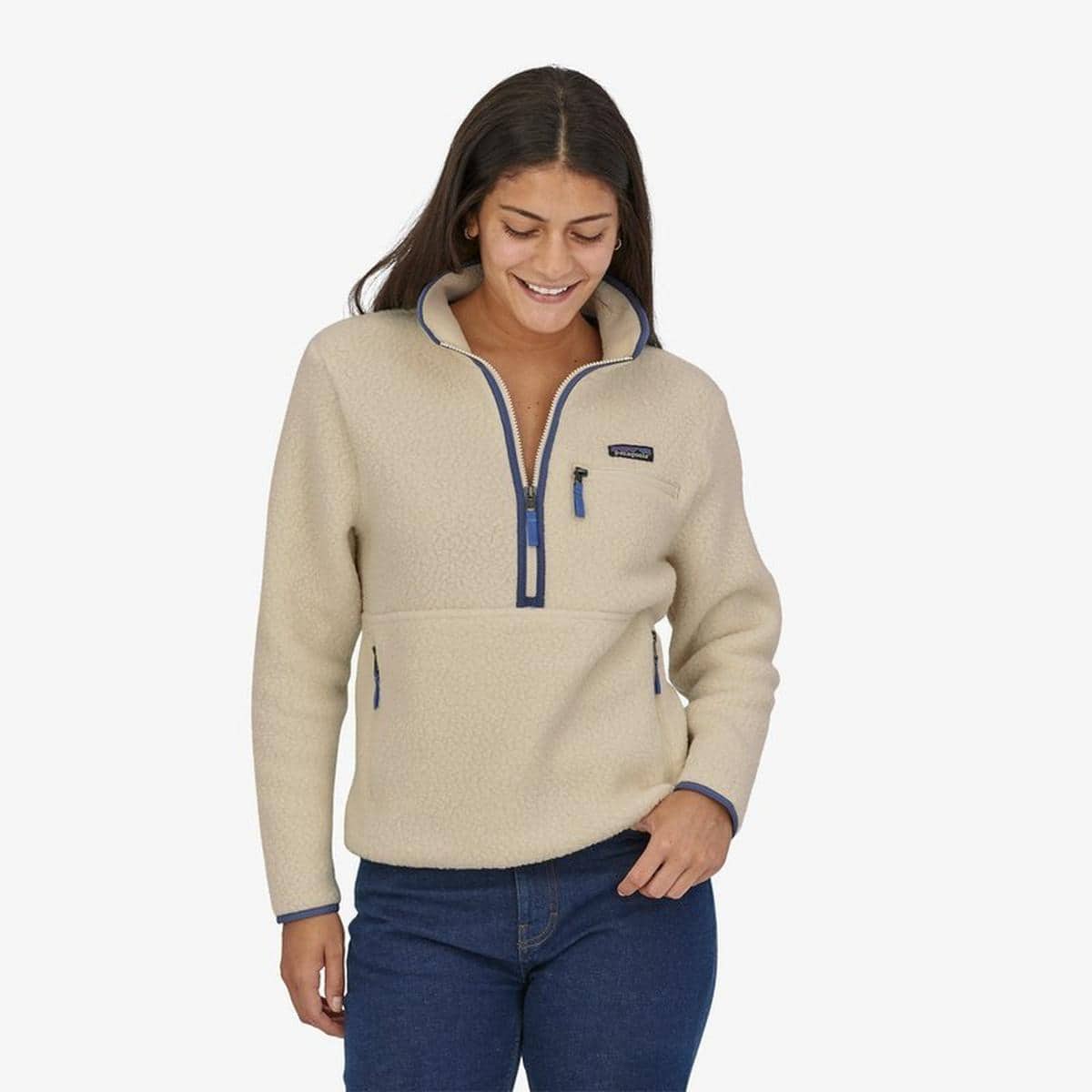
US outdoor brand Patagonia is another solid ethical brand found on the high street. in the UK its clothing can be found at its flagship Manchester store, and outdoor gear shops across the country, such as Ellis Brigham.
Recycled fabrics are key for Patagonia – with the vast majority of its collection being made from recycled materials.
Increasing amounts of its clothing are also Fairtrade certified. And as well as paying the Fairtrade premium, Patagonia pays an additional premium for every Patagonia item that carries its Fair Trade Certified™ sewn label. This helps to ensure producers are paid a fair price.
The Bottom Line
Even 11 years on from the Rana Plaza collapse, the fast fashion industry has a long way to go before it can be considered sustainable. With issues such as pollution, child labour, poverty wages and unsafe working conditions, still widespread, fast fashion brands need to work faster to improve their supply chains.
While shopping secondhand and shopping from ethical brands is the best way to shop ethically, some high street brands are doing more than others when it comes to sustainability. This proves that with a bit of careful consideration, you can still shop your values on the high street,
Reader Note: This article was originally published on 5th April 2016, and was written by Georgina Rawes of Ethical Consumer Magazine. It was significantly updated and altered by Wendy on 15th January 2024 to provide more up-to-date information.
Found this post useful? Please consider buying me a virtual coffee to help support the site’s running costs.


